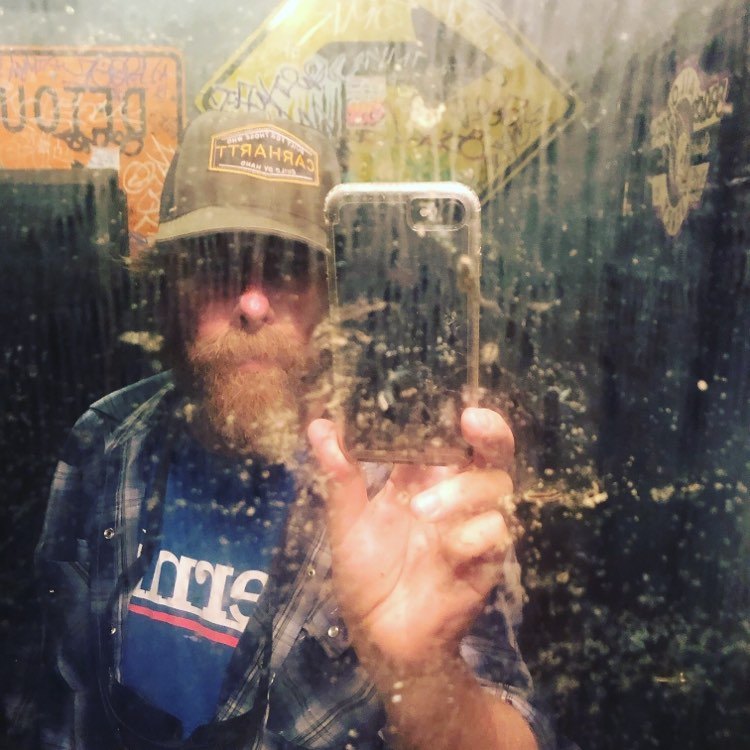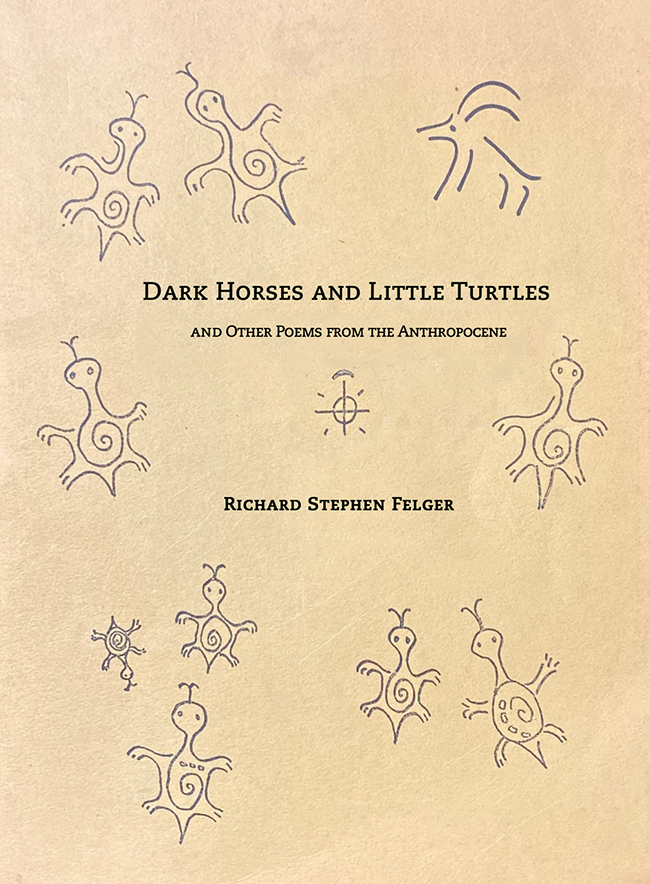Tucson COVID Tales No. 21: Trying to Make Do, by Jesse Schaefer
I was one of the first to arrive. L waited in the van, irritated at the very idea of risking a staff meeting, distanced or not. One by one we cautiously appeared on the patio, exchanging air hugs. Seating choices were gauged for safety, to the extent anyone could guess what that might actually mean. Distance, remember, distance. One or two people had to be reminded to back up, their smiles wilting into recognition that an automatic way of being was now on hold.
I knew it would be especially hard for M, who had already been nicknamed the “superspreader.” The reassurance of touch and impromptu massage for most of us was a daily affair, since restaurant work is a physically grinding machine. Separation in this group felt starkly unnatural.
Management handed out packets that had been prepared to deal with the DES, along with final pay plus a generous bonus. The three owners took turns speaking, three of my dearest friends. Tears fell, voices quaked. Dreams and money had been arrested and turned into smoke by something like a meteor. How to even fathom the catastrophe?
There was applause and the obligatory exchange of optimistic notes to try to cheer ourselves as we departed. I got back in the van and said, “Well, that could’ve been worse. Christ, I really do feel for the people who don’t have anyone, though, and are going to have to go through this alone.”
Two months later we would be calling it quits. But as for those early days, they were marked by attempts at orientation on uncertain ground. The DES proved to be the unrelenting migraine that Arizona politicians had designed it to be, second only to Mississippi in the stinginess of its unemployment benefits, with a gauntlet of bureaucratic hurdles to receive them. It felt like being deposited in a Kafka novel. The antique system relied on faxes as its preferred medium of communication, with time requirements that were so constricted they could only be intended by design to try to set up the applicant for failure. A letter would show up falsely claiming that I had been rehired by my employer and demand a faxed explanation from me by the next day. “Good thing I hadn’t been staying at L’s house when it arrived,” I thought in between curses.
Bartenders, servers, and cooks rallied though, we looked out for each other. Good phone numbers were DM’d around, inside dope from friends with contacts in the DES shared. An acquaintance from previous activist work got me in touch with a politician’s office. The shambling buggy was at least moving. Once I got my hands on a magic number and got through, the individuals working at the department proved nothing other than pleasant and helpful. Imagining them speaking to me buried at the foot of a mountain of faxes, I felt for them all.
The old folks have been troublesome in the time of COVID. Questions that I thought would be answered with an obvious “no,” such as “Is getting a haircut or a manicure worth potentially dying for?” “Is walking into a Costco in the evening, after thousands of bodies have been through the store, to buy a mediocre pizza worth the possibility of grave sickness or death?” In the case of my maddening parents, the answer was a startling “Yes, what fine ideas!”
Fury management and exasperation have been a major component of my days. If only my folks were telling me lies in retaliation for my parade of anxiety-inducing fuckups over the years. It quickly became obvious that being an angry scold wasn’t going to work. Dropping the stick, I looked for an enticing carrot to dangle. “You know, Costco delivers. In fact, most grocery stores do curbside pickup or delivery.” The deadpan response was, “No, I need to pick my own meat and vegetables.”
The stupidity of that answer puzzled me, because the man who said it was not stupid. I couldn’t tell if I was now staring at somebody in a declined mental state that had just snuck past me at some point, or at a person who had arrived at some enviable pacific attitude toward his allotted time on earth. But the horrible death! How could that be an exit to treat nonchalantly? Alone, face down, lungs drowning in a hospital bed.
I called J, my oldest friend in the world, to complain. He and his wife had been weathering the worst of it in a tiny Brooklyn apartment. J was convinced he was just getting over it (and has since been tested and indeed was). “Yes, I see ‘corral your boomers’ is trending on Twitter,” he said. It became apparent that shopping trips and the like were not seen as drudgery for many cooped-up seniors, but instead were looked forward to as exciting social outings.
I could sympathize to some degree as the months pushed forward. There have been fleeting moments of communal monkey yearning in me to disappear into a crowd at a concert or ballgame, choices that have thankfully been taken away for now. I’ve had to back off with my anger. What was once me shouting has now been worn down into a disappointed shaking of the head. Like some parent of an obstinate drug addict who refuses to come to Jesus, I don’t want to know. I just hope they get away with it.
L and I could no longer avoid the need to break up. Even with grownup consensus, all the usual feelings of sadness and failure attended the coda. Showers and laundry loads became less frequent. The recycling bin swelled. I missed her dog, and when I could bracket out our regular cycle of arguments, I missed her too. The dark tide kept rolling into shore. A friend’s father died from the virus. Then the murder of George Floyd happened. Then the predictable spike in Arizona cases appeared. The Catalinas wouldn’t stop burning. The monsoon flirted, but took her love elsewhere. We might all be done with 2020, but it isn’t done with us. There is no cryogenic chamber to climb into.
I wake up at 5:00 and drink down my daily medicine with a pint of water, then tend to a couple of ailing, heatstroked plants in the yard. The bats are at their hunt’s end, and soon the hummingbirds will be emerging from their torpor. By 5:30 I’m on my bike heading to the Santa Cruz. Through the dirt of the vacant lot, over the split crags of gray asphalt, offering a texture like Godzilla’s back, I make my way to Cushing and the freeway. Cutting a careful diagonal over the orderly menace of the trolley tracks, I pedal onto the bridge. The glass and steel of the headquarters of Caterpillar, those leaders in modified wilderness, are starting to warm into a coppery bloom in the dawn light.
Thinking Haydukeish thoughts, I head to the river path. There are fewer souls down here than I would expect, but I know by 6:00 the number will jarringly double. I glide past Desert Survivors. If bars and restaurants are going extinct, maybe I should go to work in a nursery? Surely it would make me a calmer and gentler person? I keep an eye out for wildlife—a friend had told me about some owl sightings in the last few days. The misery box of Pima County Jail looms on the right. I reflect on the horror of the place under normal circumstances, but now with COVID permeating, I feel a tinge of nausea.
I lob an imaginary bundle of dynamite à la For A Few Dollars More at a cell block wall. Just thought you ladies and gentlemen could use some fresh air. Ahead, trotting down a wash, the ashen gold of a coyote flickers. I pull over to admire it. Canis latrans, deity, survivor, ancient one. Our petite canid that never crossed the land bridge out in the Eurasian diaspora with his cousins. A true native that makes a mockery of government eradication attempts decade after decade. Ambling toward the water, head low, scanning for rodents, it offers me some kind of shape of resilience.
“I don’t know if American humans will turn out to be as talented as you, coyote,” I say to myself. A thousand things can still go wrong. I tip my hat in thanks for its appearance and continue on the sinuous desert path, with Auden’s line “uncertain and afraid” suddenly flaring into my consciousness.

Jesse Schaefer is an out-of-work bartender.
Category: TUCSON COVID TALES




